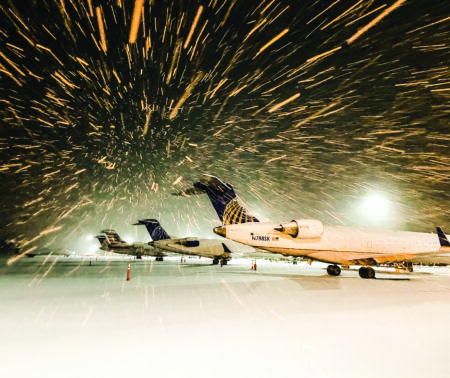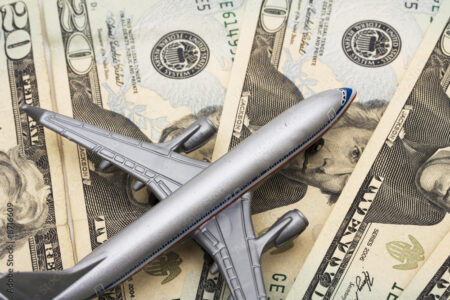While awareness of the impact of stress and fatigue on pilots is increasingly well-understood, the assessment of, and support for, individuals dealing with mental health challenges is not yet homogenous across the industry.
Physical health and safety is well understood and managed in terms of professional and personal risk, but now the industry’s focus is moving to mental health and how it can keep operating safely and efficiently while also better supporting the mental well-being of its staff.
It cant be denied that piloting an aircraft is very a high-pressure job, one that requires your full attention and immediate decision-making.
Everyday stressors and fatigue can impact this, but it’s important to remember that there’s an area below operating optimally where you can still operate safely – and nobody can function at 100% all of the time.
The problem occurs when you drop below safe, something that can happen when dealing with a mental health crisis. As past incidents have shown, the impact of an undisclosed or untreated mental health issue can be deadly; so much so that a Bloomberg News study on crashes involving Western-built commercial airliners reported that pilot murder-suicides ranks as the second most prevalent cause of airline crash deaths between 2011-2020.
It also reported that deaths resulting from pilot murder-suicides increased between 1991-2020, while fatalities related to accidental causes significantly decreased.
Having recognized the problem, the industry has been working on solutions. Fatigue risk management regulations and best practices were put in place in the 2010s, and from 2020 we’ve seen organizations such as the European Union Aviation Safety Agency (EASA) develop new goals related to the management of psychosocial risk in the workplace.
Keeping the skies safe

The traditional medical regulation model when a pilot discloses new mental health symptoms, takes psychoactive medication or sees a therapist has been to remove their medical certification temporarily and ground them until treatment is complete.
But while this may appear to be the safest thing to do, it might be making the skies more dangerous says Captain Dave Fielding, a British Air Line Pilots Association (BALPA) representative, secretary of the European Pilot Peer Support Initiative (EPPSI) and chair of the International Peer Assist Aviation Coalition (IPAAC). He believes many pilots will avoid asking for help or taking medication for fear of having their license suspended. “They can’t afford to be grounded for a year while they take their medication, so they simply don’t. What’s even more worrying is that they’re still looking for relief from depression, and some may go so far as to self-medicate using recreational drugs they know aren’t being tested for,” says Fielding, citing the incident in the US last October where an Alaskan Airline pilot hallucinated after taking magic mushrooms two days previously and attempted to shut the engines down in flight.
“When it comes to a pilot struggling with mental health, this paradigm can inadvertently leave pilots weighing the benefits of seeking care against the risks to their career,” continues William Hoffman, MD, an affiliated assistant professor of aviation at the University of North Dakota and the vice chair of Aerospace Medical Association (AsMA) Mental Health Working Group.
“While most can return to duty, the system may encourage pilots to delay care until the symptoms become unmanageable alone.”
But don’t just take Hoffman’s word for it, a recent study of almost 4,000 US pilots in the Journal of Occupational and Environmental Medicine showed that 56% admitted to a history of health care avoidance, including not disclosing information during aeromedical screenings or avoiding care even when they felt it was needed.
Thankfully, many working groups and organizations are looking at different ways to overcome these issues, ensuring air travel remains safe while those who need help can receive it without risking their careers. Here we take a look at some of the latest initiatives from across the globe.
Peer support programs
Having been a union rep for almost 30 years, Fielding has seen his fair share of colleagues lose their jobs due to stress, burnout or substance abuse. Back in the early noughties, he set about creating a program where pilots could get the help they needed in a safe space before things spiral out of control.
This got off to a slow start, but by 2015 Fielding had established the first training course for flight safety reps within the BALPA, which was run by charity the Samaritans. However, things changed dramatically that year, when pilot Andreas Lubitz deliberately crashed Germanwings flight 95245 into the Alps.
“Views around the impact of mental health issues changed after the Germanwings crash – support went from being nice to have to a must-have, as people recognized that mental illness could kill,” he says. “This led to the creation of peer support programs.
“They offer a warm arm around the shoulder and a friendly ear from a colleague who understands the lifestyle and the stresses, with training and support from mental health professionals.”
The first peer support program to be established after this disaster was at British Airways. “It has already helped hundreds of pilots who otherwise would have suffered in silence,” Fielding says.
Having been involved in developing the BA program, he was invited to join EPPSI, which went on to “write the book on how to set up a peer support program”.
According to Fielding 80% of participants in a peer program resolve their issues through a confidential conversation and guidance on support and next steps. The other 20% are signposted to the further professional care they need.
“A big part of our job is around trust,” he says. “Pilots can distrust doctors and regulators, but they trust their peers. This is a big part of why these programs work so well.”
Fielding’s work in this field continues to grow, and EPPSI and IPAAC have now broadened these programs to include all safety-critical personnel in aviation, such as air traffic control officers and aircraft engineers.
“Even though there are different licensing requirements we still suffer the same issues and are all safety-sensitive. As far as I am concerned, anyone who touches an aircraft needs to have access to support for their mental health.”
Mental health and European pilots

This April saw the two year EASA research program MEntal Health in Aviation SAFEty (MESAFE) culminate in a two-day conference in Cologne, Germany. Overseen by Italian company Deep Blue, MESAFE reviewed the gaps and challenges reported by aeromedical examiners carrying out regular mental health checks.
“Our research found that there was a lot of variability and heterogeneity in terms of the procedures and methods used in mental health assessments,” says aviation psychologist Paola Tomasello, MESAFE’s lead consultant.
“Some situations didn’t have a structured interview but rather just a questionnaire and very little time allocated to the assessment. In other cases, we saw mental health specialists cooperate with the medical examiner to do a proper assessment.”
As well as this variability Tomasello says the project found a lack of appropriate resources, mental health specialists and training on mental health for medical examiners.
“We presented our results at the conference, including 44 recommendations targeted to EASA policymakers to update the existing standards related to aeromedical mental health assessments. These are based on a multi-layered approach, where all stakeholders are engaged in monitoring and protecting mental health.”
The team also produced guidelines for each of the stakeholders, education materials and a method called the mental incapacitation risk assessment process, which medical examiners can use to evaluate the risk that a mental issue could pose to flight safety. EASA is initiating regulatory action to evaluate how to implement several of the recommendations proposed by the study.
“We expect that this will improve the assessment, while at the same time allowing the pilots to be part of the process and understand the risks and outcomes,” says Dr Cristian Panait, medical expert, from EASA’s Aircrew and Medical Department.
FAA recommended changes
Also this April, the Federal Aviation Administration’s (FAA) Aviation Rulemaking Committee (ARC) on Mental Health published a recommendations report about the mental health of pilots.
In addition to identifying some of the barriers pilots face related to mental health, the ARC report proposed 24 changes to the FAA. These include dropping the requirement for a pilot to inform the administration if they see a counselor, through to developing a pathway for pilots to continue working while on certain medications.
“Pilots with a severe mental health condition certainly shouldn’t be flying, but we are interested in how we might help those with mild symptoms – perhaps facing one of life’s common stressors – to get support when needed to prevent symptoms from worsening,” says Hoffman.
The FAA is now deciding which recommendations to take on board. While new mental health education efforts are unlikely to face opposition, broad overhauls to computer and medical processing systems will likely be contingent on support outside of the FAA.
“Most difficult will be decisions about what pilots can do while working and what they need to tell the FAA. There is a surprising paucity of safety data,” Hoffman says. “Data will be key to building tomorrow’s aviation system, where safety and wellness are at the center.”
Proactive psychosocial risk management
During April this year the UK’s Royal Aeronautical Society also published a paper on mental health. “Psychosocial Risk Management and Mental Health – The Mental Health Challenge to Civil Aviation Safety in the 21st Century” highlights key areas of the aviation ecosystem that would be improved by taking a coherent approach to recognizing, managing and mitigating staff mental health and well-being.
“This paper is generally seen as the definitive work in this area and provides a holistic approach to remedy this growing crisis rather than just attempting to put a plaster on an already concerning situation,” says one of the report’s author and lawyer Gerard Forlin KC, from Cornerstone Barristers, London and State Chambers, Sydney, Australia.
The report considers the growing recognition and acceptance of the concept of psychosocial risk management (PsRM). It suggests that the ISO 450003 psychosocial risk management in the workplace approach offers a possible route to creating a practical and pragmatic starting point for the sector. The paper concludes that a policy of proactive PsRM could lead to enhanced performance and safety.
However, Forlin says that the aviation sector still has many improvements in the way it deals with mental health issues. “We now need to create an integrated approach across all the stakeholders to establish a strategic working group to focus on our paper’s 13 recommendations. This should ideally include the authors of the report.
“Much more needs to be done. We seem to have hit a turning point when it comes to pilots’ mental health, but the rest of the aviation sector is lagging behind. This is a crucial issue. The prosecutors and regulators wait in the wings if we don’t act fast and far enough,” Forlin concludes.





